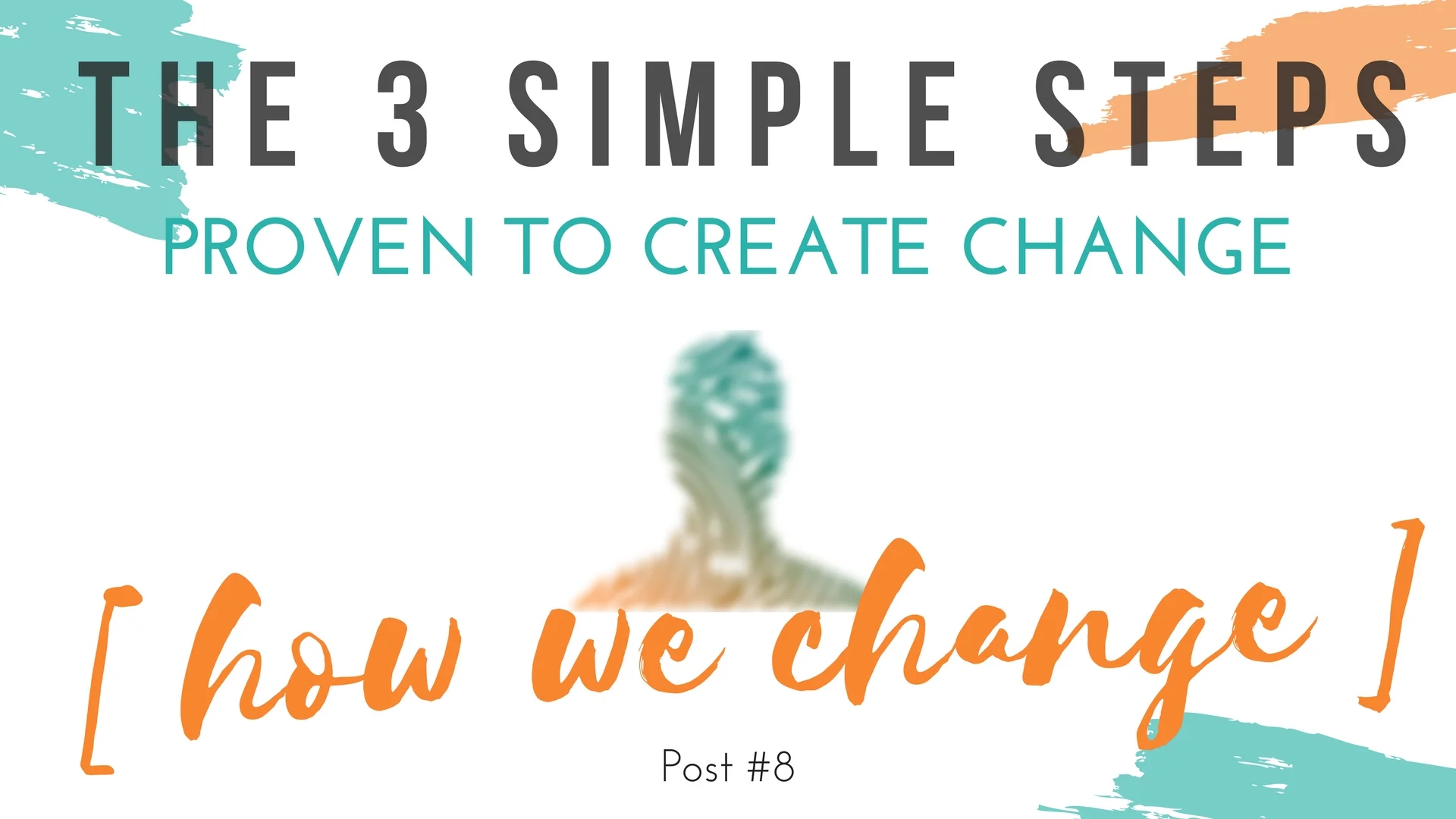[How We Change] - The 3 Simple Steps
/Want the simplified version of making a change?
In any psychological or physiological change, research gets pretty consistent in the basic flow of how changing behavior happens:
Goals
Accountability
Rewards
Goals
Creating a goal is part of making the change easier than avoiding it and moves you from contemplation to action. It gives direction - like a light illuminating the path so you can see where to begin going.
It is helpful to make these goals measurable - often accompanied by the plan through which the goal can be achieved. There is a process called the WOOP Principle where you name what you want (W), what the outcome or goal is (O), the obstacles in the way of that goal (0), and the plan to overcome the obstacle (P). This system has been proven to actually elicit changes in lifestyle and behavior.
Accountability
Even if it is just telling something what you intend to do - gives a social currency to the goal. By bringing in other people, there is a sense of support, a sense that the change is larger than just you, & a sense that it will now cost you something to retreat from your claim.
Simply by making your intention public (that is, someone knows besides you), it builds in a system to continue taking action especially when you don’t want to - it builds in motivation. Especially if the person is actively supportive, knowing you will have to report your progress makes you much more likely to actually make progress. There are even apps for “coaches” or “accountability” that creates this mechanism for the variety of changes someone might be attempting to make.
Rewards
Having rewards built into your process helps inspire motivation. You start small, reward yourself, it conditions you to see the change as desirable, building momentum, and now making the change is easier. Make these rewards built into your plan - when you accomplish one small step, build in a reward to condition the positive behavior and make achieving that goal tangibly valuable. Also, making the reward a "natural consequence" - that is - a result of your achieved behavior, furthers the sustainability of the change you are making.
So if you do nothing else, just start with these three components.
Name what you want to change, then:
1. Claim your goals and the plan to follow to achieve those goals.
2. Create accountability with people you trust.
3. Build in rewards as you reach various levels of goals.
This is post #8 in the series "How We Change"
Get the rest of the series here:
If you would like to get content delivered right to your inbox, you can subscribe here:











![Three Reasons We're Lonely - [And Three Responses For Being Less So]](https://images.squarespace-cdn.com/content/v1/5963d280893fc02db1b9a659/1651234022075-7WEKZ2LGDVCR7IM74KE2/Loneliness+3+update+%283%29.png)





























